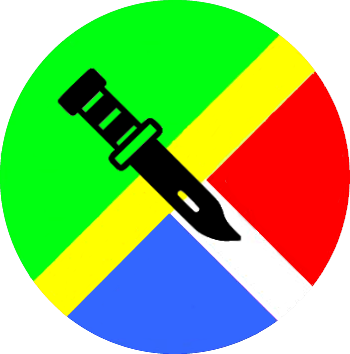
Windows (Equipment)
? Questions:

Car Window Tinting
Will cut down on any outside glare. Reduces UV radiation. Keeps vehicle cooler. Less prone to theft as it is more difficult to see inside cabin. More protected from smash and grab theft. Make sure that the shade of the tinting, and which windows are allowed to be tinted, are compliant with local laws otherwise it could invalidate your car insurance.
Car Window Damage
If you can afford to do so, replace any cracked or chipped windows, especially main windshield, which could otherwise compromise the strength of the window. Due to stresses of travel, possibility exists of glass shattering while the vehicle is in motion. Driving with a shattered windshield that has a hole in it runs the risk of glass shards being blown into your eyes. If the windshield is dusty or dirty, do not use the wipers which can scratch the glass by scraping fine grit over the surface. In a similar way to the point above, when the side windows are dusty or dirty, try not to open the windows until cleaned, otherwise grit can scratch the surface in the process.
Car Window Care
Wherever possible, park in the shade. Before parking under a tree, have a look at any bird droppings on the ground, which will give you a good indicator of how likely your car is to be defecated on. Will keep your car cooler. Reduces cracking and fading of dashboard due to harmful UV radiation. Reduces the foggy film build up on the inside of the windshield from vapors coming off plastic and vinyl materials heated by the sun.
Car Window Demisting
On cold mornings, the inside of the windows can easily mist up. Windshield: Do not try and wipe while driving as you will lose focus on the traffic and dangers that could arise. The window will also quickly mist up again. The best solution is to set the aircon to the coldest setting and directing the airflow directly onto the windshield. You will literally see the mist rapidly disappear. Rear Window: Switch on the demister, if installed. Do not to forget to switch off once the rear window is clear. If no demister or aircon, try opening the side windows. If all else fails, rather pull the vehicle safely to the side of the road and clean windows. The cleaner the inside of the windows are, the less misting will occur.
? Do car windows block UV rays?
Windshield
High UV Protection : The windshield typically provides the most protection against UV rays. It is usually made from laminated glass, which consists of two layers of glass with a layer of plastic in between. This structure blocks nearly all UVB rays and a significant portion of UVA rays.
Side and Rear Windows
Moderate UV Protection : Standard side and rear windows are usually made from tempered glass. They block nearly all UVB rays but allow a substantial amount of UVA rays to pass through. UVA rays are primarily responsible for skin aging and some forms of skin cancer.
Factory-Tinted Windows
Enhanced UV Protection : Some cars come with factory-tinted windows, which have an additional layer that helps reduce the penetration of UVA rays. However, the level of protection can vary, and it might not be as effective as aftermarket solutions.
Aftermarket Window Tints
High UV Protection : Aftermarket window tints can be applied to provide additional protection. High-quality tints can block up to 99% of both UVA and UVB rays. These tints are a good option if you want to enhance UV protection further.
Benefits of UV Protection in Car Windows
Skin Protection : Reduces the risk of skin damage and skin cancer by minimizing exposure to harmful UV rays. Interior Protection : Prevents the car's interior materials, such as the dashboard, seats, and upholstery, from fading and deteriorating due to UV exposure. Improved Comfort : Reduces the heat inside the car, making it more comfortable to drive, especially on sunny days.
Conclusion
? Is it illegal to drive with a cracked windshield ?
Visibility : A cracked windshield can obstruct the driver's view, reducing visibility and potentially causing accidents. Structural Integrity : The windshield contributes to the structural integrity of the vehicle's cabin. A crack weakens this integrity, especially during a collision or rollover, increasing the risk of injury to the occupants. Legal Requirements : Many jurisdictions have specific laws that mandate windshields to be free from cracks or damage that impairs the driver's vision. Violating these laws can result in fines or penalties.
What to Do if Your Windshield is Cracked:
Repair or Replace : Depending on the size and location of the crack, it may be possible to repair it using specialized techniques. However, if the crack is extensive or compromises visibility, replacing the windshield is often the safest option. Consult a Professional : Always consult with a professional auto glass repair or replacement service to assess the crack and determine the best course of action. Insurance Coverage : Check if your auto insurance policy covers windshield repair or replacement. Some policies may fully or partially cover these costs.